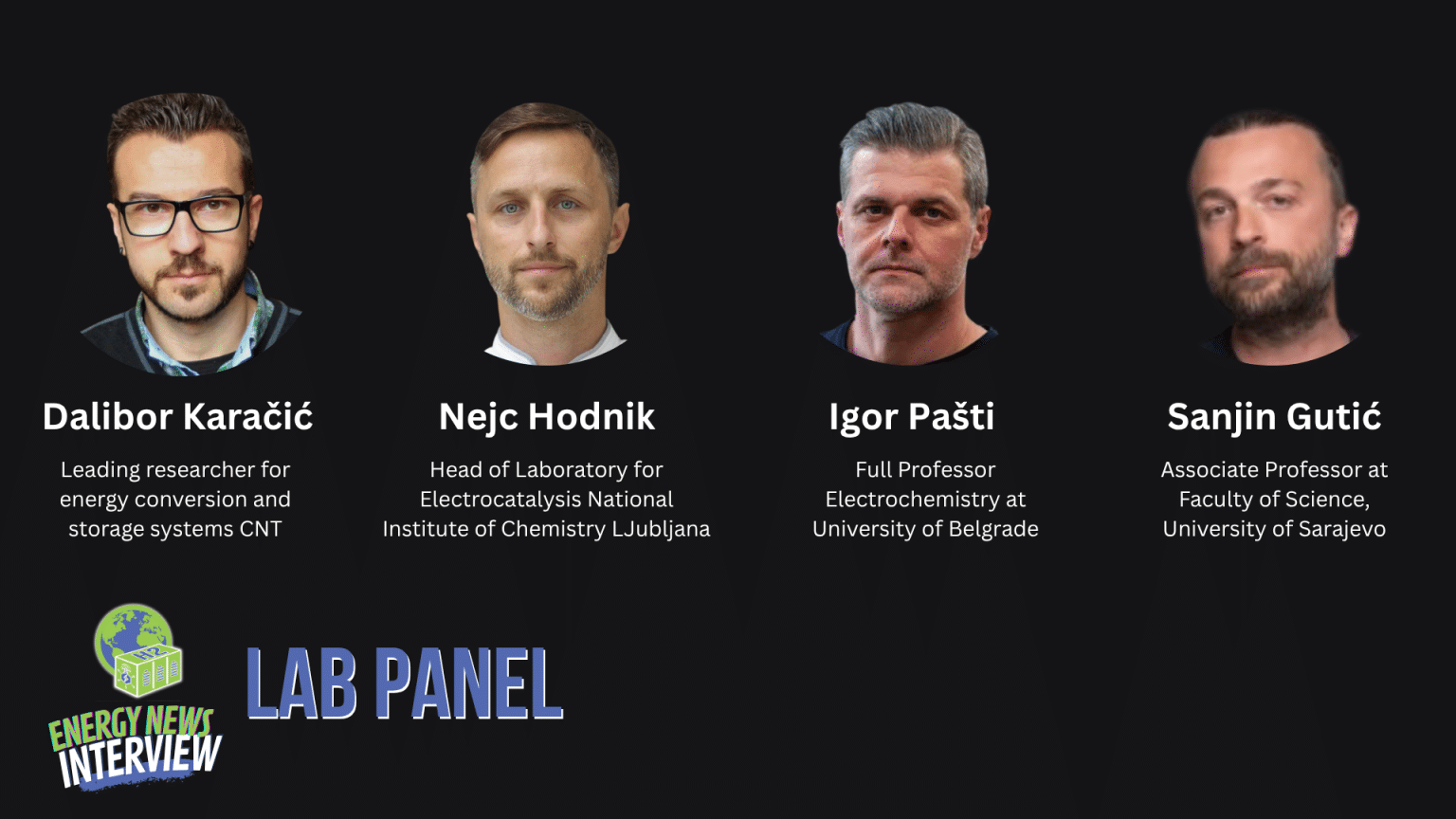In 2023, global investment in hydrogen technologies surpassed $200 billion, yet the gap between academic research and scalable solutions remains stark. The issue isn’t just one of funding—it’s about research that overpromises and underdelivers. According to four hydrogen scientists from Southeast Europe—Dalibor Karačić, Nejc Hodnik, Igor Pašti, and Sanjin Gutić—the vast majority of hydrogen research will never see commercial light. Their warning is blunt: complexity, vanity metrics, and misplaced priorities are stalling the sector’s potential.
WATCH THE FULL INTERVIEW HERE
Operating under NATO’s Science for Peace and Security framework, this lab panel is approaching hydrogen from a different angle: functional simplicity, seawater access, and dual-use systems. Their current project integrates membrane technology with seawater electrolysis, aiming not only for fundamental research outcomes but also real-world prototypes. As Hodnik puts it, “We’re not chasing novelty for the sake of citations—we’re building something that can leave the lab.”
The team’s rationale is based on data and design constraints. For example, while the theoretical requirement to produce 1 kg of hydrogen is 9 liters of water, fossil-based hydrogen extraction consumes far more due to upstream inefficiencies. In contrast, electrolysis from seawater and even wastewater could deliver hydrogen with lower water intensity and without reliance on ultrapure inputs, offering significant infrastructure savings. This is especially relevant for regions like Bosnia and Serbia that lack industrial hydrogen infrastructure but possess abundant natural water sources and technical talent.
Yet, the transition from lab success to industrial viability is rarely straightforward. One of the most cited barriers is material scalability. Many catalyst systems used in lab settings rely on rare metals or unrealistic environmental controls. Hodnik critiques this directly: “99% of what you see in literature can’t be scaled. Either the material is too unstable or the process can’t run outside one elite lab.”
Rather than focusing on incremental voltage gains, the group is optimizing electrolyzer systems holistically. That includes rethinking membranes for osmosis control, balancing current inputs with physical desalination rates, and factoring in real-world variables like seawater temperature. For Karačić, the integration of these elements is not just technical—it’s political. “We can deliver,” he says. “But I don’t know who’s willing to receive it. Political will is lagging behind technical capability.”
The geopolitical context matters. Slovenia, Serbia, and Bosnia—though often overlooked in global clean tech narratives—have deep engineering traditions. Bosnia, for instance, had ammonia factories decades ago. The capacity exists, but the attention doesn’t. Gutić notes the systemic bias: “Policy attention often goes to the first loud voice, not the best-prepared lab. That ‘duck effect’ means pseudoscientific claims often get funded before proven science.”
The scientists also point out a crucial but under-discussed economic angle: storage. Hydrogen’s low volumetric energy density makes high-pressure storage expensive and technically complex. But for many industrial applications—like ammonia production or steel processing—high pressure isn’t necessary. “We already have tanks sitting at 200 bar,” says Pašti. “They’ll hold hydrogen safely for two years. The storage problem is more about use case than physics.”
Another persistent myth the team challenges is the race for platinum-group metal alternatives. While long-term supply concerns for iridium and platinum are valid, the group takes a pragmatic view. “You can wait 20 years to mine enough, or you can build something slightly less efficient, but cheaper and locally autonomous,” Hodnik argues. “That second path has fewer geopolitical dependencies and more economic sense in the short term.”
As for market readiness, all four scientists agree: the hydrogen economy won’t emerge from breakthrough science alone—it requires synchronized infrastructure, supportive policy, and, above all, scalable thinking. That means funding systems must stop rewarding complexity for complexity’s sake. “It’s not about who can build the most elegant molecule,” says Gutić. “It’s about who can build a robust system with imperfect parts.”
Their message is clear: the tools are here. The science is sound. What’s needed is a shift in how the world evaluates hydrogen innovation, not just by scientific novelty or media visibility, but by its ability to operate in reality.





